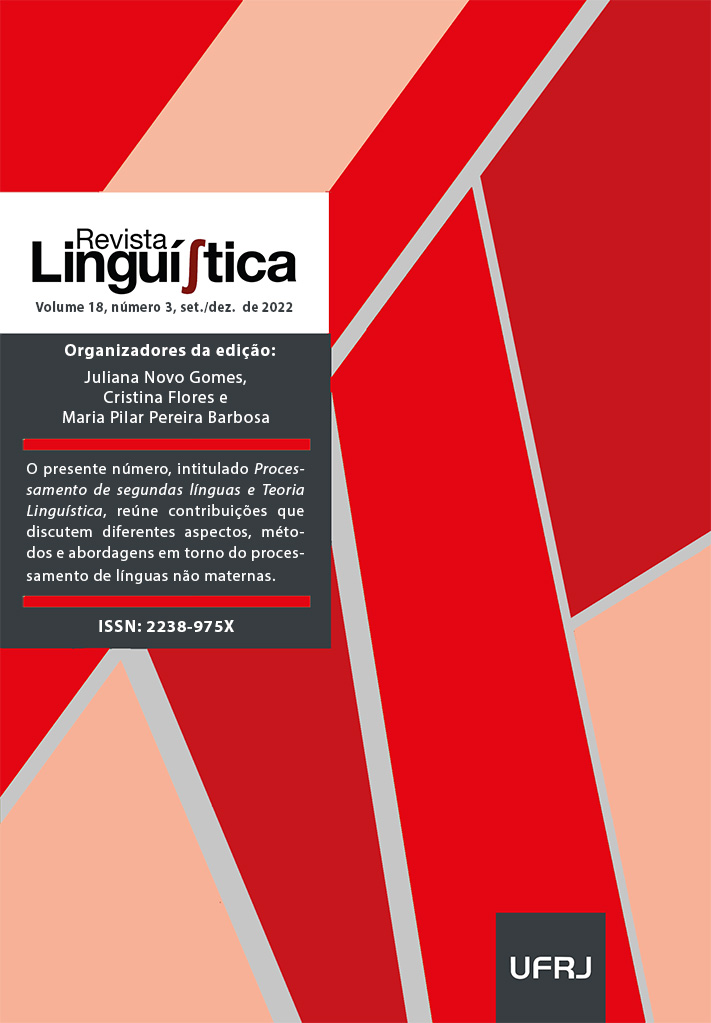Structural priming effects during the oral production of English as l2
DOI:
https://doi.org/10.31513/linguistica.2022.v18n3a57465Keywords:
structural priming, L2, syntactic processing.Abstract
Structural priming effects in L1 oral production are associated with the automatic nature of processing and implicit knowledge. In L2, however, these effects are not well known. The present study investigated syntactic processing in the oral production of Brazilian Portuguese late learners of English as L2 to determine if structural priming effects can be detected within the L2. To do so, participants performed an oral sentence production task in English within four experimental conditions in which the use of active and passive voices with and without repetition of the main verb was manipulated. Participants also performed an oral sentence production task in the active and passive voice that served as a baseline to detect their individual preferences in the use of verbal voices. Results demonstrated a complex interaction between structural priming effects and the individual tendency to reuse the syntactic structure in L2. Results also showed a greater production of the passive voice structure in the experimental conditions in comparison to the baseline. Furthermore, the effects of structural priming were mainly found in conditions 3 and 4, which were both related to the passive voice, the less frequent structure. The results in condition 3 indicated an interaction of structural priming effects and the repetition of the head of the structure (i.e., the verb), meaning that verb repetition boosted these effects when structure (i.e., the passive voice) and verb were repeated (lexical boost). Taken together, these findings provide evidence for structural priming in English as L2 during oral production, mainly in the passive voice structure.
Downloads
Published
Issue
Section
License
Authors who publish in the Revista Linguí∫tica agree with the following terms:
The authors maintain their rights, ceding to the journal the right to first publication of the article, simultaneously submitted to a Creative Commons license permitting the sharing with third-parties of published content as long as it mentions the author and its first publication in the Revista Linguí∫tica.
Authors may enter into additional agreements for the non-exclusive distribution of their published work (for example, posting in online institutional or non-profit repositories, or book chapters) so long as they acknowledge its initial publication in the Revista Linguí∫tica.

The journal Revista Linguí∫tica is published by the Post-Graduate program in Linguistics of UFRJ and employs a Creative Commons - Attribution-NonCommercial 4.0 International (CC-BY-NC).









